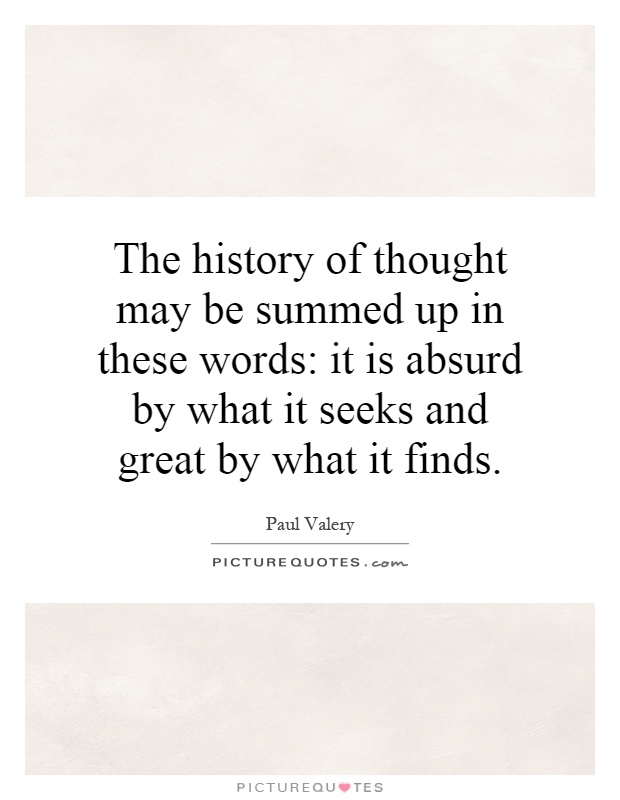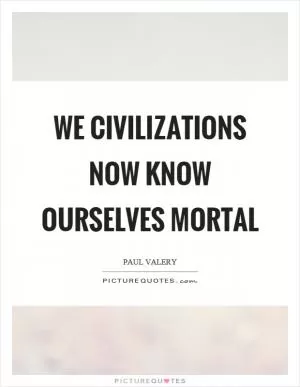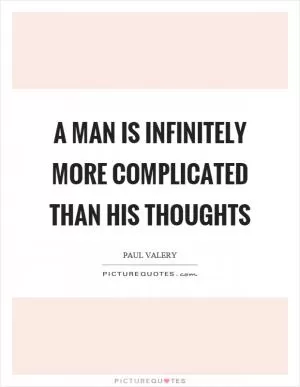The history of thought may be summed up in these words: it is absurd by what it seeks and great by what it finds

The history of thought may be summed up in these words: it is absurd by what it seeks and great by what it finds
Paul Valéry, a French poet, essayist, and philosopher, is known for his profound insights into the nature of thought and creativity. His quote, "The history of thought may be summed up in these words: it is absurd by what it seeks and great by what it finds," encapsulates his belief that the pursuit of knowledge and understanding can often seem futile and irrational, but the discoveries and insights that result from this pursuit are ultimately valuable and transformative.Valéry's statement reflects the paradoxical nature of intellectual inquiry. The quest for knowledge can be frustrating and bewildering, as we grapple with complex ideas and struggle to make sense of the world around us. The process of seeking answers can feel like an exercise in futility, as we encounter dead ends, contradictions, and uncertainties. However, it is through this process of seeking that we are able to uncover new truths, challenge our assumptions, and expand our understanding of the world.
Valéry suggests that the true value of thought lies not in the pursuit itself, but in the discoveries that result from it. The moments of insight, clarity, and revelation that come from grappling with difficult questions and engaging in deep reflection are what make the pursuit of knowledge worthwhile. It is through this process of seeking and discovery that we are able to make sense of the world, uncover hidden truths, and push the boundaries of human understanding.












 Friendship Quotes
Friendship Quotes Love Quotes
Love Quotes Life Quotes
Life Quotes Funny Quotes
Funny Quotes Motivational Quotes
Motivational Quotes Inspirational Quotes
Inspirational Quotes